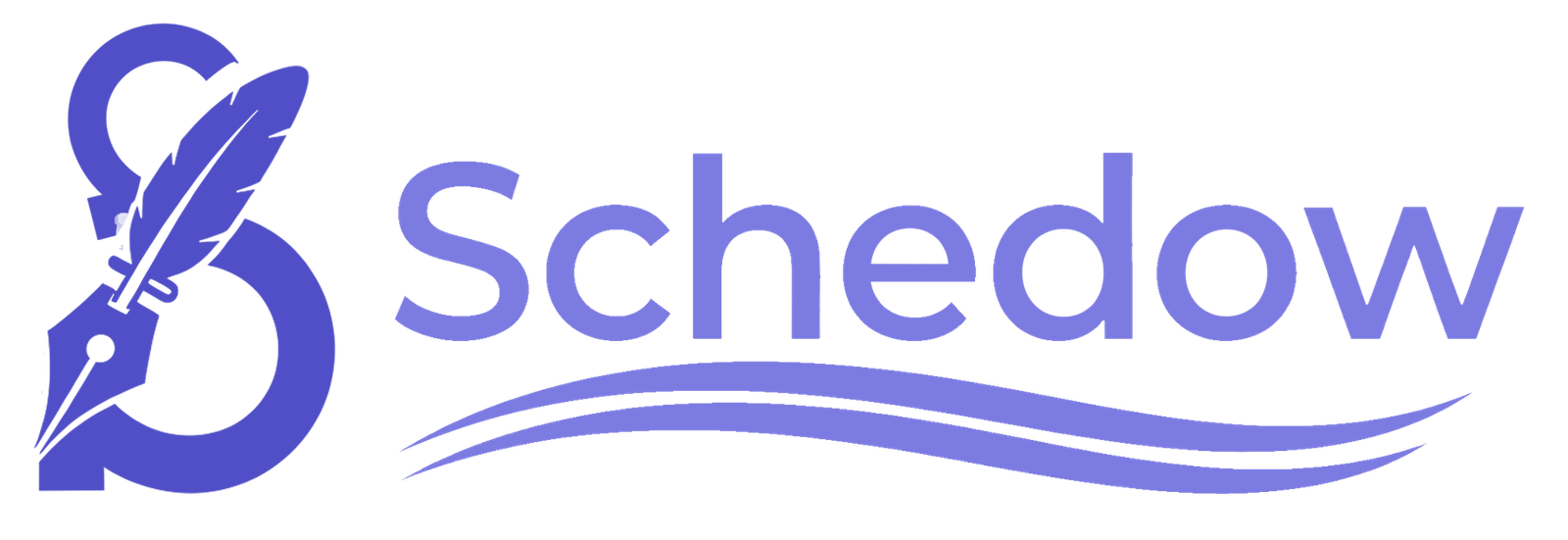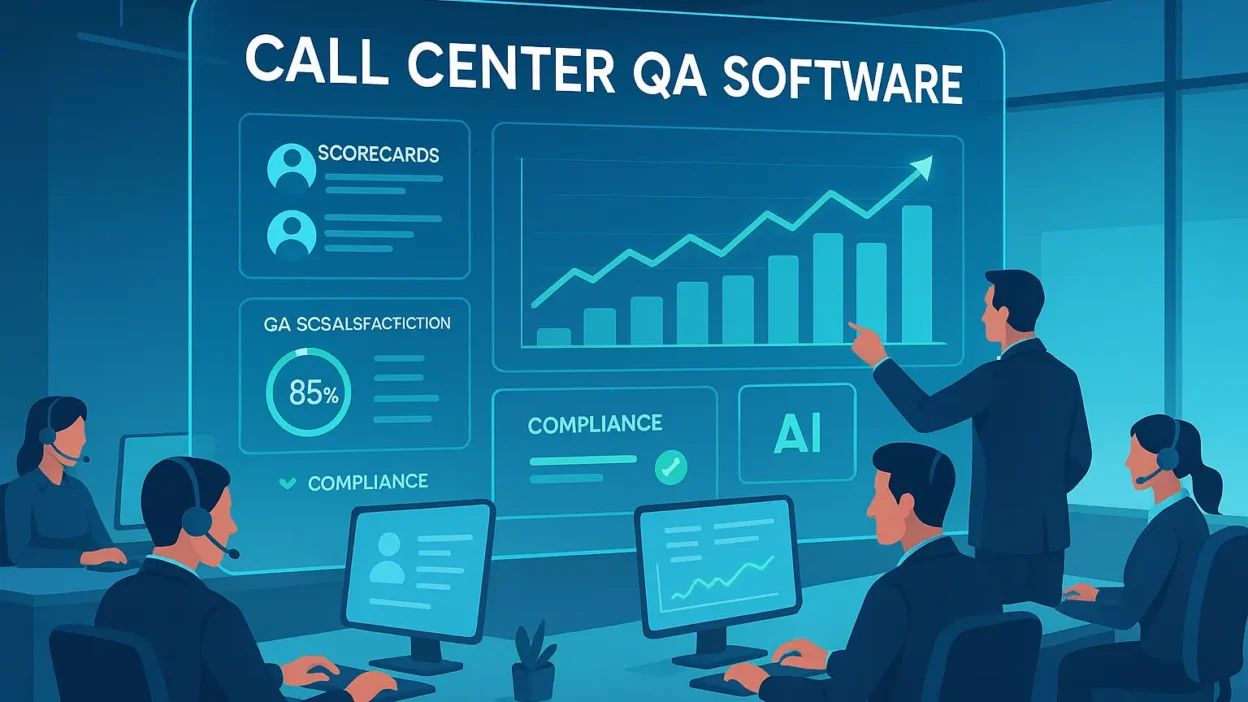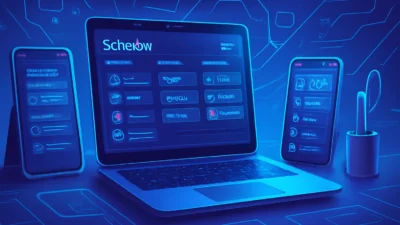Introduction
In the customer service hectic environment, it is important to make sure that quality interactions are assured. This is where call center QA software is coming into place. Such tools assist the businesses in tracking and bettering their customer service ensuring that each call is maintained to standards.
Here, we are going to discuss the top-performing call center QA software on the market, the value they provide, and how this important technology is going to evolve in the next five years. As a manager or agent, you can improve the quality of your services and customer satisfaction with the help of the knowledge of QA software.
What Is Call Center QA Software?
Call center QA software is a particular application which is used to review and enhance the quality of interactions with customers in call centers. It assists the supervisors in listening to, scoring and analyzing calls so that the agents adhere to the company guidelines and deliver great services.
Key Features of Call Center QA Software
- Call recording and playback: Check discussions to the accuracy.
- Automated scoring: Score the calls using AI on a predetermined basis.
- Dashboards on agent performance: Monitor personal and team performance.
- Real-time notification: Inform the supervisors about emergent problems in calls.
- Feedback and coaching tools: These offer constructive feedback to the agents.
Through these capabilities, call centers are able to increase the level of service and also determine areas that can be improved.
Benefits of Using Call Center QA Software
The use of call center QA software has many benefits that qualify customer experience and business performance.
1. Better Customer satisfaction
QA software serves to provide high-quality and consistent service, thus resulting in happier customers by making sure that agents adhere to best practices and solve their problems.
2. Enhanced Agent Performance
Feedback and coaching after evaluating the calls every so often will encourage the agents to enhance their skills and to follow the company standards.
3. Increased Compliance
QA software assists in greater monitoring of the compliance with legal and other industry regulation and minimizes non-compliance risks.
4. Data-Driven Insights
Managers also receive useful analytics regarding the call trends, agent performance as well as frequent customer problems which help managers make smarter decisions.
5. Time and Cost Efficiency
Online scoring and reporting save time and resources as it is automated.
Best Call Center QA Software Tools in 2025
The call center QA software market is expanding, and numerous solutions are available with some more sophisticated features and AI capabilities. The following are some of the best tools to be considered:
1. NICE CXone
All-inclusive call recording, quality management and analytics. Its AI scoring is used in identifying the important points in calls.
2. Verint Speech Analytics
Emphasis on speech recognition and sentiment analysis to give profound knowledge of customer interactions.
3. Calabrio ONE
Offers is a one-stop solution that integrates workforce efficiency and quality management, coaching, and real-time feedback capabilities.
4. Playvox
Playvox, which is known to have a user-friendly interface, is able to support automated QA scoring and agent coaching.
5. Genesys Quality Assurance
Its products are fully compatible with Genesys contact center solutions, which offer robust QA and compliance solutions.
Comparison of Top Call Center QA Software Tools
| Software | Key Features | AI Capabilities | Best For | Pricing Model |
| NICE CXone | Call recording, AI scoring | Yes | Large enterprises | Custom pricing |
| Verint Speech Analytics | Speech recognition, sentiment analysis | Yes | Analytics-driven centers | Subscription-based |
| Calabrio ONE | Workforce optimization, coaching | Moderate | Mid to large call centers | Custom pricing |
| Playvox | Automated scoring, agent coaching | Yes | Small to medium businesses | Tiered pricing |
| Genesys QA | Seamless integration, compliance | Moderate | Genesys users | Custom pricing |
How Call Center QA Software Enhances Agent Training and Coaching
A good aspect of QA software is that it aids in the development of agents. With QA data, supervisors are able to:
- Find particular areas of weaknesses.
- Give feedback on actual call examples on a personal basis.
- Measure performance with time performance dashboards.
- Reward agents with the help of gamification.
- Conduce specific training to deal with the weak areas.
This will result in constant improvement and a more competent and confident workforce.
Key Features to Look for in Call Center QA Software
These are some of the key features that need to be considered when selecting the appropriate QA software:
1. Automation and AI
AI analysis and automated scoring decrease human bias and make evaluations faster.
2. Customization
Capability to customize scoring requirements and reports to your business requirements and objectives.
3. Integration
Easy integration with current call center software and CRM software.
4. Real-Time Monitoring
Live alerts on calls enable the supervisors to step in when it is required.
5. User-Friendly Interface
The simplicity in navigation by both the managers and the agents will promote frequent use.
Essential Features vs. Nice-to-Have Features in QA Software
| Feature | Essential | Nice-to-Have |
| Automated Scoring | Yes | Advanced AI-based insights |
| Call Recording | Yes | Multi-channel recording |
| Customizable Scorecards | Yes | Industry-specific templates |
| Real-Time Alerts | Yes | Predictive analytics |
| Agent Coaching Tools | Yes | Gamification features |
| Integration | Yes | Mobile app support |
The Future of Call Center QA Software in 2025 and Beyond
In the future, the call center QA software will be even smarter and more integrated. Here’s what to expect:
1. Greater AI Adoption
More sophisticated AI will give more insights, enhanced emotion detection, and more precise automated scoring.
2. Omnichannel Quality Management
Calls, chat, email and social media interaction will occur within the same platform with the use of QA.
3. Real-Time Assistance
The real-time AI-based coaching will guide the agents during live calls to improve it on the spot.
4. Predictive Analytics
This kind of software will be used to predict how agents perform and satisfactions of customers to avoid problems at an early stage.
5. Enhanced User Experience
Less complex dashboards and mobile will encourage more uptake and team use.
How Call Center QA Software Supports Compliance and Security
The laws on consumer information and correspondence are tightening. QA software helps by:
- Storing and recording the calls.
- Monitoring compliance on scripts and legal disclaimers.
- Facilitating compliance auditing.
- Assuring privacy of data by encryption and access control.
This will minimize risk and customer confidence.
Tips for Successfully Implementing Call Center QA Software
The best way of using your QA software is by observing these best practices:
- Assure clear quality standards prior to making up assessments.
- Educate train supervisors and train agents on the use of the software.
- Coach and process improvement are based on regular use of data.
- Make transparency and open-sharing of QA results to agents.
- Keep on changing scoring standards to suit evolving business objectives.
The right adoption will result in excellent outcomes and satisfied consumers.
Conclusion
Call center QA software will become increasingly significant in 2025. It also guarantees the quality of customer interaction, enhances the competence of the agents, and adheres to the regulations. The tools that will be most helpful are those that would be automated, enhanced by AI, and easy to use to offer valuable insights and real-time help.
The proper investment in the appropriate QA software can assist a business to remain competitive, satisfy customers, and develop a motivated workforce. Call center QA software is one of the necessities to success, whether it is a small team of a large contact center.
FAQs
Q1: What is call center QA software?
The call center QA software is the type of software that is used to monitor, assess, and enhance the quality of exchanges with customers in the call centers. It assists in monitoring the performance of the agents, compliance, and customer service.
Q2: What is the benefit of using call center QA software to businesses?
It enhances customer satisfaction, builds agent performance, reduces regulation compliance risk, automates and thus saves time, and offers insights that are valuable with analytics.
Q3: What are the features that I should consider in call center QA software?
The major characteristics are automated scoring, call recording, customized scorecards, real time alerts, integration with current systems, and agent coaching tools.
Q4: Do small businesses adopt call center QA software successfully?
Yes, most QA software is provided at scalable prices and is designed to meet small to medium businesses and also large business enterprises.
Q5: What is the positive effect of AI on call center QA software?
The evaluation of the calls is quicker and more precise since AI scores the calls, interprets the moods and feelings, points out critical points of the conversations and offers real-time coaching recommendations.





